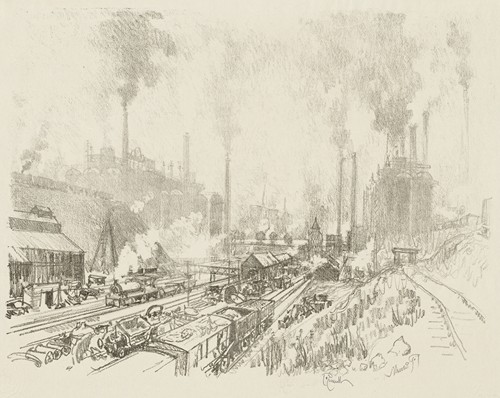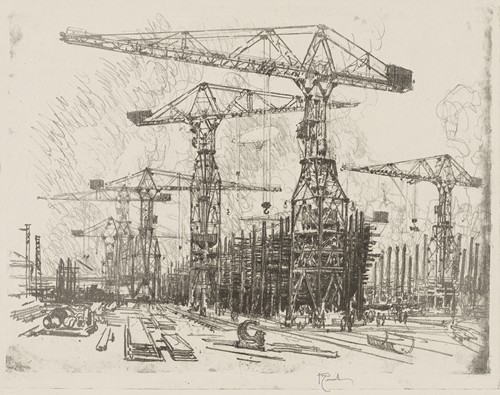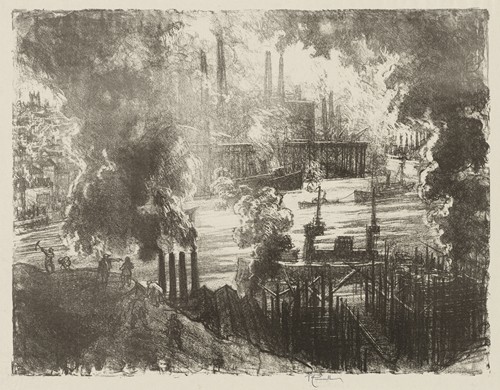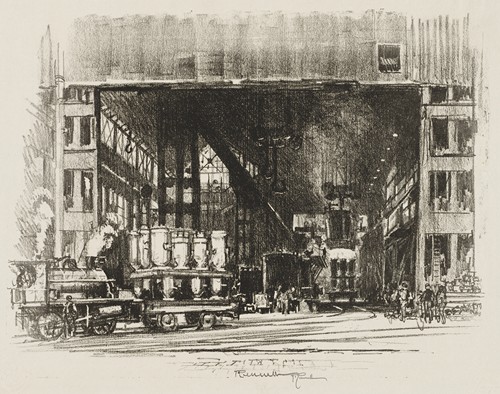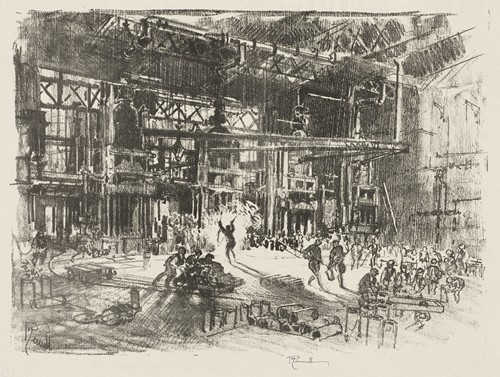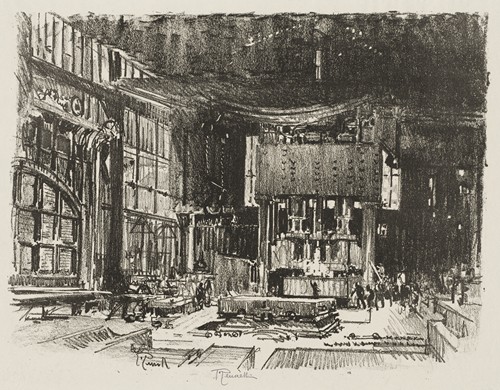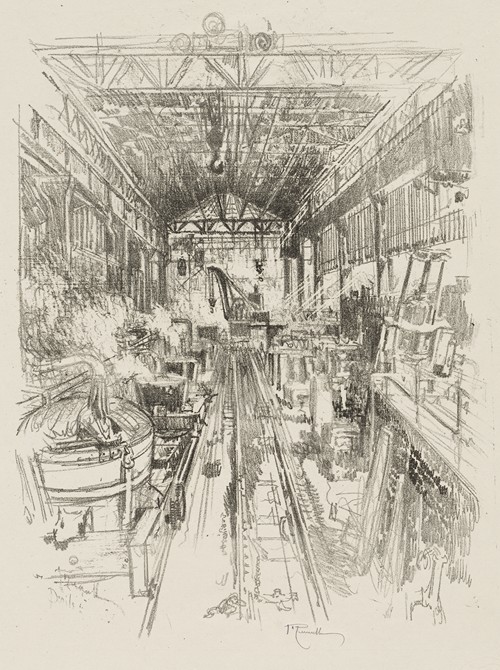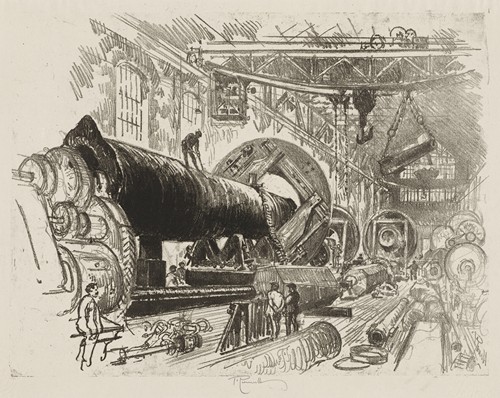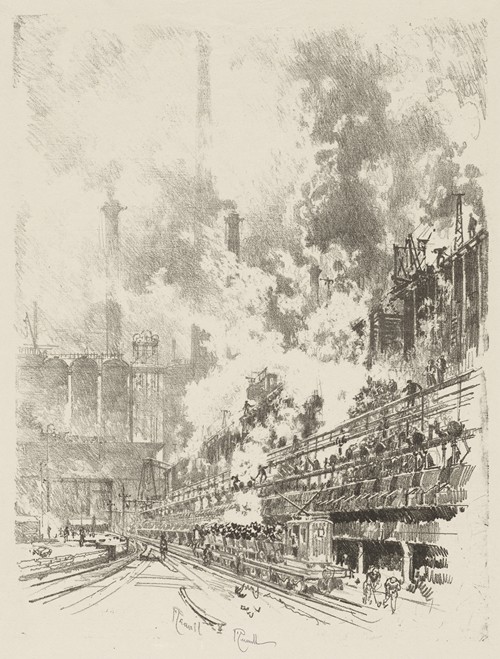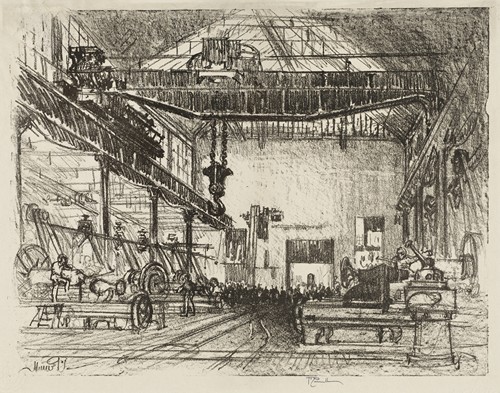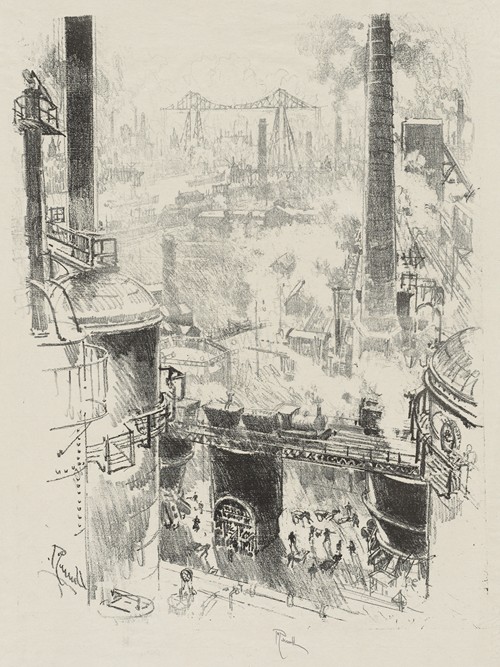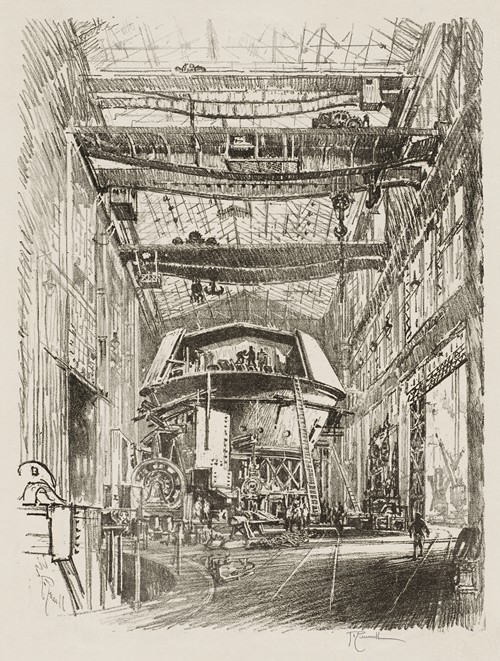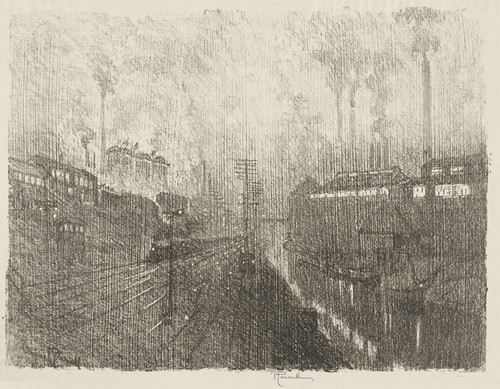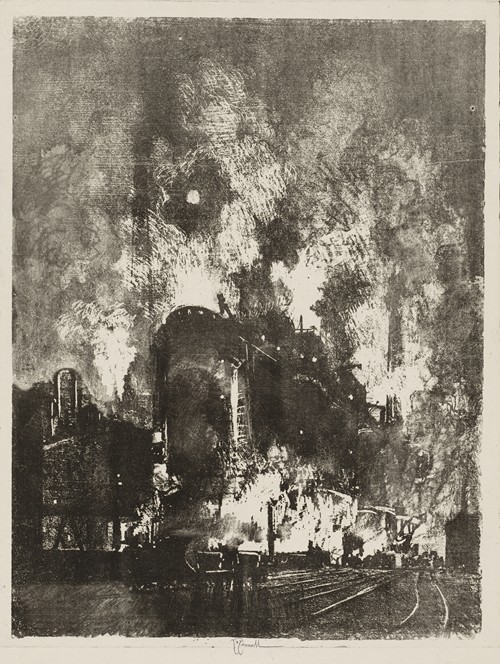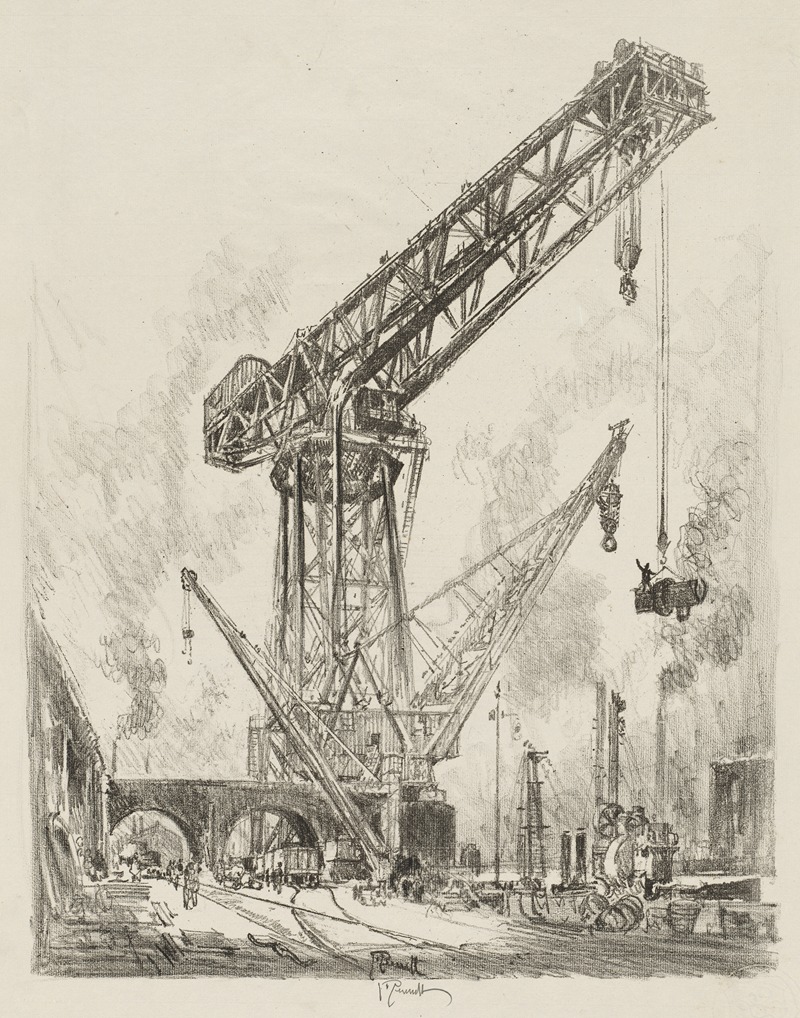
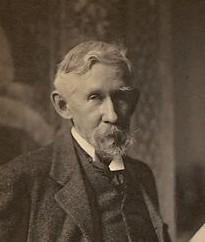
Joseph Pennell was an American artist and author.
Pennell was born in Philadelphia, and first studied there, but like his friend, James McNeill Whistler, he then made his home in London, and taught at Slade School of Art. He won a gold medal at the Exposition Universelle (1900), and 1904 Louisiana Purchase Exposition. He taught also at the Art Students League of New York.
Pennell made etchings that depicted landmarks in Philadelphia. His main distinction is as an original etcher and lithographer, and notably as an illustrator.
He wrote and illustrated an anti-Semitic travel book, The Jew at Home: Impressions of a Summer and Autumn Spent with Him (D. Appleton: New York, 1892), based on his travels in Europe. He produced other books, many of them in collaboration with his wife, Elizabeth Robins Pennell. In 1886 he published Two Pilgrim's Progress, an illustrated book of his journey with Elizabeth from Florence to Rome, riding a heavy tricycle. The Pennells wrote a biography of Whistler in 1906, and, after some litigation with his executrix on the right to use his letters, the book was published in 1908. In 1912, Pennell traveled to Panama to create lithographs of the Panama Canal, which was still under construction.
Pennell visited San Francisco in March 1912, where he undertook a series of "municipal subjects". These were exhibited in December 1912 at "the prestigious gallery of Vickery, Atkins & Torrey". It is possible that Pennell's visit inspired San Francisco printmakers Robert Harshe and Pedro Lemos, along with sculptor Ralph Stackpole and painter Gottardo Piazzoni, to found the California Society of Etchers in 1912, now the California Society of Printmakers.
Pennell designed the poster for the fourth Liberty Loans campaign of 1918. It showed the entrance to New York Harbor under aerial and naval bombardment, with the Statue of Liberty partly destroyed.
